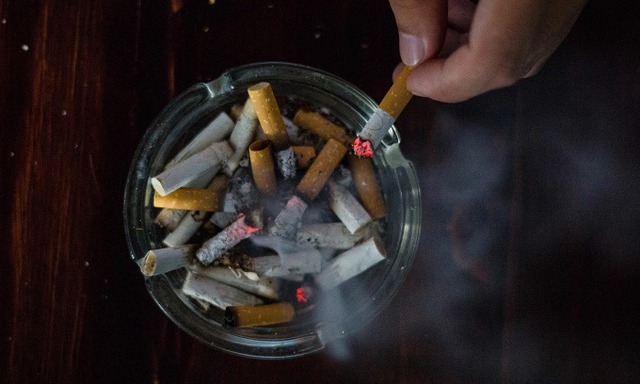Viet Nam should seize historic opportunity to curb tobacco harm and to support economic growth, says WHO
VGP - WHO Representative in Viet Nam Dr. Angela Pratt said that the Vietnamese Government has a historic opportunity to protect health and safeguard the economy for decades to come when the National Assembly considers changes to tobacco tax as part of the draft Revised Excise Tax Law soon.

Viet Nam's current tobacco tax system is not optimally aligned with the country's deepest values, nor operating in the interests of public health or the economy."
"Tax reform would achieve a 'win-win' of reducing tobacco consumption and therefore health harms, while generating additional revenue for key government priorities – including investment in accelerating progress towards achieving the UN Sustainable Development Goals (SDGs)," she said.
Tobacco is very harmful to health, killing up to half of its users who do not quit. Around the world, it causes more than 8 million deaths each year.
In Viet Nam, smoking-related diseases claim over 100,000 lives each year. Smoking harms not only those who smoke but also those exposed to second-hand smoke, including women and children, with 11,000 women in Viet Nam dying from second-hand smoke related illness each year.
Tobacco is very cheap in Viet Nam. With more than 15 million current smokers, tobacco use is fueling a growing crisis of illness and premature deaths and, on current trends, Viet Nam will not meet national or international targets to reduce the number of smokers by 2030.
The economic costs of smoking are estimated at 108,000 billion VND each year, or about 1.1 percent of gross domestic product (GDP), through lost productivity and health care expenditure. Tobacco use also deepens poverty – with poorer families buying tobacco rather than spending money on their children's education or other needs.
"Smoking is a threat to Viet Nam's aspiration of achieving high-income country status by 2045," Dr Pratt said.
"Increasing tobacco tax, and therefore the price, is the fastest and most cost-effective way to reduce tobacco consumption. It encourages smokers to quit and discourages young people from starting. So, tobacco taxation can protect both current and future generations of workers in Viet Nam."
WHO congratulated the Ministry of Finance and the Government on the draft Revised Excise Tax Law as a step in the right direction. However, there is scope for the current proposal to be more ambitious.
"We very strongly recommend a specific tax of VND15,000 per pack by 2030, on top of the current percentage rate of 75 percent of the factory price. This would help reduce men's smoking to below 36 percent by 2030, in line with the national target, and mean 3.2 million fewer smokers by 2030," she said.
This change would also bring in an extra VND29.3 trillion in 2030 compared to 2020 for public goods and services – like health, education and infrastructure – to promote and sustain economic growth.
WHO urges lawmakers to be skeptical of the false claims which will inevitably be spread by the tobacco industry in the lead-up to its deliberations. The tobacco industry's only interest is in protecting its profits.
"Despite the claims of the tobacco industry, higher tobacco taxes and prices will not result in more tobacco being smuggled into Viet Nam. The evidence and international experience clearly show that smuggling is more influenced by enforcement capacity than prices and taxes," Dr Pratt said.
"The tobacco industry is also playing on fears that higher taxes will mean higher unemployment. But this is also false. When the price of tobacco goes up, people's spending shifts to other products. Plus, increased Government revenue can be invested back into more productive sectors of the economy."
As General Secretary To Lam said, "Protecting, caring for, and improving people's health is not only the task of the health sector but also the responsibility of each citizen, the entire political system and the whole society."
"WHO urges National Assembly members to take advantage of their upcoming session to help create a healthier, more prosperous future," Dr Pratt said./.

